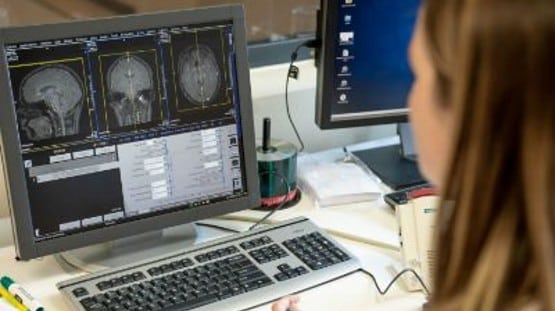
An integrated trauma system of military and civilian health professionals will share best practices on civilian and battlefield trauma care. Health care professionals from Naval Medical Center Portsmouth, including personnel from Navy Medicine Readiness and Training Command Portsmouth and Expeditionary Medical Facility Juliet will join the civilian medical team at VCU Medical Center’s Level I trauma center.
“The addition of military colleagues will significantly enhance the skills and knowledge of our medical professionals at VCU Health. It also gives military health professionals the unique opportunity to train at one of the top trauma centers in the country to strengthen and sustain their readiness to deploy,” Dr. Michel Aboutanos, medical director of VCU Medical Center’s Level I trauma center and Trauma System Network, said.
The full integration of the partnership will go beyond clinical care delivery and include working together on quality improvement, civilian disaster preparation and response plans. The military medical professionals will increase force readiness and enhance core skills for future deployments, while also teaching VCU Health providers the best practices from the battlefield to further advance civilian trauma care and disaster preparedness. The partnership includes academic and research initiatives and officially started last week with the arrival of the first group of nurses.
The leading cause of death in the United States for children and adults under age 44 is traumatic injury, according to the Centers for Disease Control and Prevention. Several life-saving innovations that stem from combat casualty care in the U.S. military have shown to improve treatment in civilian hospitals.
“Our goal is to meet and exceed Navy Medicine’s knowledge, skills and abilities sustainment requirements, developing and maintaining expeditionary core skills and proliferating operational readiness,” Capt. Linda Smith, EMF-J commanding officer, said. “Our first clinical rotations are a proof-of-concept training model. It will focus on three nurses (emergency medicine, operating room and critical care) starting in July for six weeks, to obtain specialized burn/wound and trauma care.”
NMRTC Portsmouth is a premier readiness and training platform that provides superior medical training for military medical service members at the U.S. military’s oldest, continuously operating military hospital. Since 1830, NMCP, a nationally acclaimed, state-of-the-art military treatment facility, along with the area’s 10 branch health and TRICARE Prime Clinics, provides medical care for warfighters and their families.
“Throughout the clinical rotation, we will obtain objective information on the rotation plan and skills development so we can modify future rotations to ensure our staff is receiving high-yield expeditionary core skills development and sustainment. After the nursing proof of concept has been evaluated, we will expand the rotations to physicians, corpsmen, and other allied health specialties. This will ensure the development of well-rounded expeditionary core skills that will be vital in any future military campaign as it pertains to Navy Medicine,” Smith added.
VCU Health and Virginia Commonwealth University have a history of advancing trauma care for battlefield settings. Quick Clot Combat Gauze, one of the game-changing innovations developed for combat casualty care and brought to scale during the U.S. military operations in Iraq and Afghanistan, is based on a technology developed by VCU researchers.
“The military health care workforce is well trained, highly skilled and tremendously motivated,” Dr. Marlon Levy, interim senior vice president for VCU Health Sciences and interim CEO of VCU Health System, said. “Our partnership allows military personnel to practice in busy environments to keep the clinical edge they’ll need when they deploy to care for US forces and our coalition allies — particularly in war zones. We will all benefit tremendously from this partnership.”
Such partnerships aim to reduce the number of preventable deaths from traumatic injuries both on the battlefield and back home. In fall 2022, VCU Medical Center was the only central Virginia recipient of a new U.S. Department of Health & Human Services “Mission Zero” grant, aimed at improving trauma care by combining the strengths of civilian hospitals and military trauma systems. The academic medical center received the Military-Civilian Partnership for Trauma Readiness grant along with 24 other hospitals across the country.
“The partnership will broadly benefit the Richmond community and the commonwealth of Virginia,” VCU Medical Center President Michael Roussos said. “Many research discoveries and significant lessons learned in combat settings can be applied to urban and rural trauma management. Additionally, military experience in emergency preparedness and disaster management will be essential to enhance the emergency and disaster response system in Central Virginia.”










